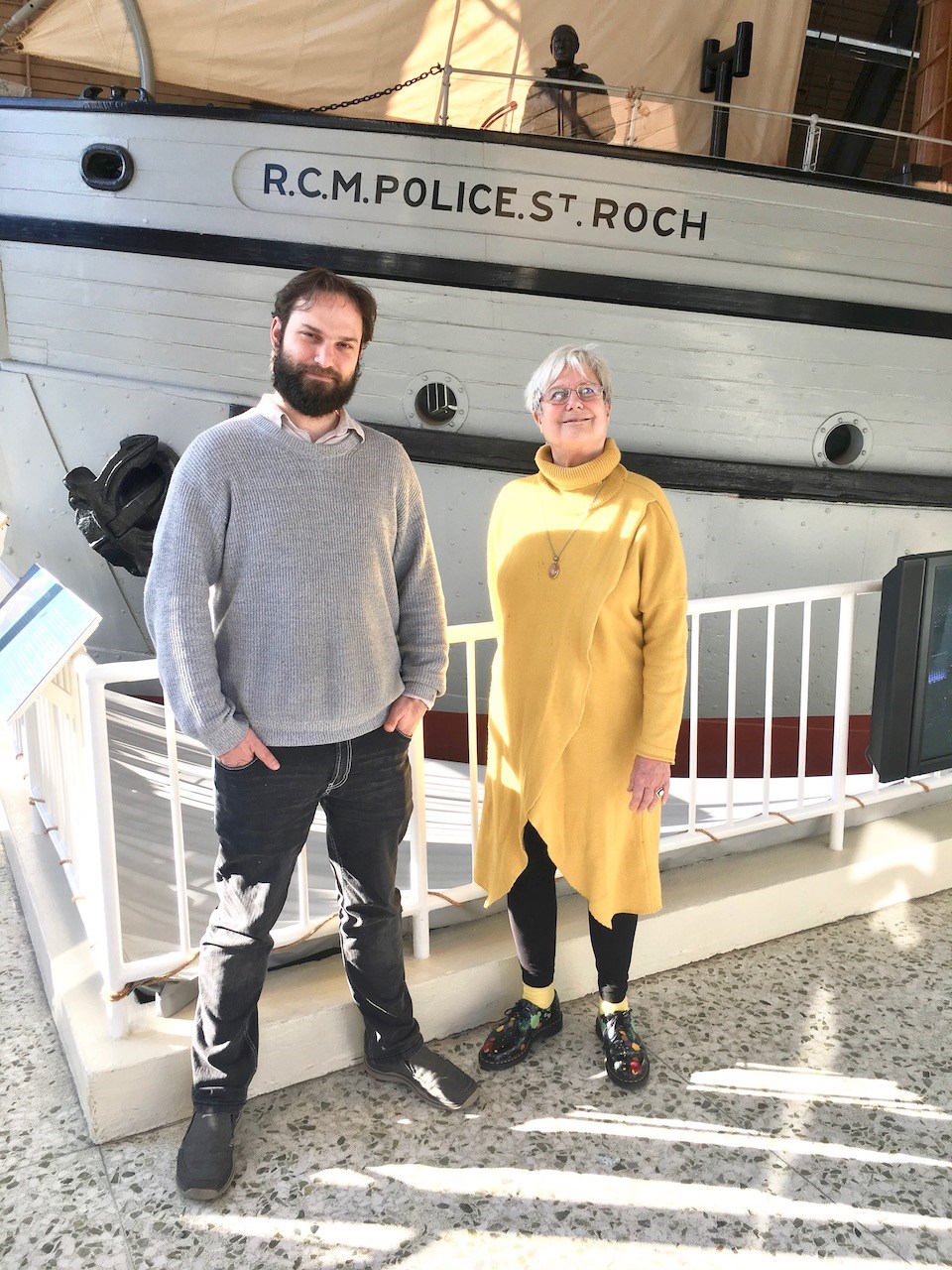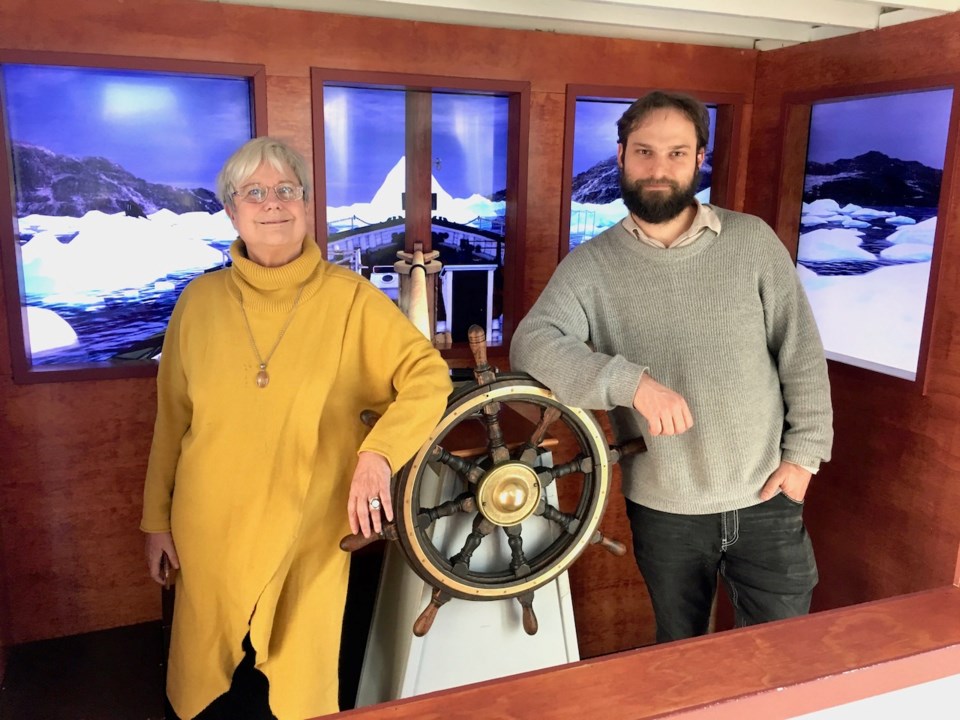When the RCMP vessel the St. Roch left Vancouver in June 1940, it faced an uncertain future.
The Second World War raged overseas, the English having just evacuated Dunkirk, and the St. Roch’s small Canadian crew was preparing to take on the famously treacherous Northwest Passage in a mission to reinforce Canada’s northern sovereignty.
“She was an arctic girl, preferring the haunting hiss and swirl of the northern lights to the quiet green lapping of these inland waters,” writes island poet Jude Neale in her contribution to the St. Roch Suite, which will debut in Prince George March 9.
The suite is part music, part spoken word, and grown from a partnership between Neale and Vancouver musician Thomas Beckman.
Beckman composed the suite’s three movements over the past couple of years after falling in love with the now-retired ship, today a National Historic Site and fixture at the Vancouver Maritime Museum in Kitsilano.

“At the time I didn’t have the commission, I didn’t have any assurance from any one orchestra that it would get played. I just took it upon myself to write something,” says Beckman.
After doing a piece with the Vancouver Symphony Orchestra, Beckman approached the Prince George Symphony Orchestra, which agreed to perform the suite this spring.
“Every movement or chapter deals with a certain aspect of the [ship’s] first journey,” explains Beckman.
From the ‘40s Bernard Herrmann-style opening, with optimism and enthusiasm as the ship set out, the tale grows darker and colder.
“They had been frozen in place by the mighty battalions of ice. A small boat held fast in the hard and cold sea,” writes Neale in the second mini chapter of the suite.
Neale came into the project around a year ago. She and Beckman had worked on other projects together and neither is quite sure how the partnership on the suite came about, but it did.
“Basically every three or four months, we would get together and we would go over a movement and she would share with me her writing and I would share with her my music,” explains Beckman. At times Beckman would scrap entire movements, writing them over again, sending Neale back to her note pad.
“Jude’s poetry really helped with [the writing] because she encapsulates the emotion and the drama and feeling of the story so well.” says Beckman.
“With all the freedom that we’ve taken, what she’s written and what I’ve written still end up complementing each other so well and I think that speaks to the strength of the collaboration,” he says.
“Dark days and zippered nights
sapped our worn down beliefs,” wrote Neale in her third mini chapter.
“The third movement is really a fantasia on the scene by Stan Rogers, “The Northwest Passage,” which is probably the most famous Canadian folks song,” says Beckman.
But while John Franklin’s HMS Terror and HMS Erebus stuck and sank in ice, the St. Roch and her ironbark (eucalyptus) hull freed from the ice and arrived in Halifax two years after leaving Vancouver. (Stan Rogers wrote the significantly less famous “Take It From Day To Day” about the crewmembers’ experience on the St. Roch.)
With Inuit help, the ship would be the first ship to traverse the Northwest Passage from West to East, the first to sail both ways (the St. Roch did two trips through the Arctic route, both captained by Henry Larsen) and later became the first vessel to circumnavigate North America.
“[The third movement] just catches the feeling of the hurl the heroics of the ship breaking free from the ice and eventually making it back to Halifax harbour,” says Beckman.
But it’s not quite the hero’s welcome one might expect. The St. Roch arrived in Halifax October 1942, returning to a world still at war.
“They arrived in Halifax Harbor, having completed this route...and it was received very sort of nonchalantly, in that there was no big grand parade, there was no big celebration,” says Beckman. “So the whole movement sort of ends kind of quietly.”
Though Bowen Islanders likely won’t be able to make it to the St. Roch Suite’s Prince George premiere, Neale and Beckman are producing a CD this spring. Neale says it will hopefully be for sale by this summer.



